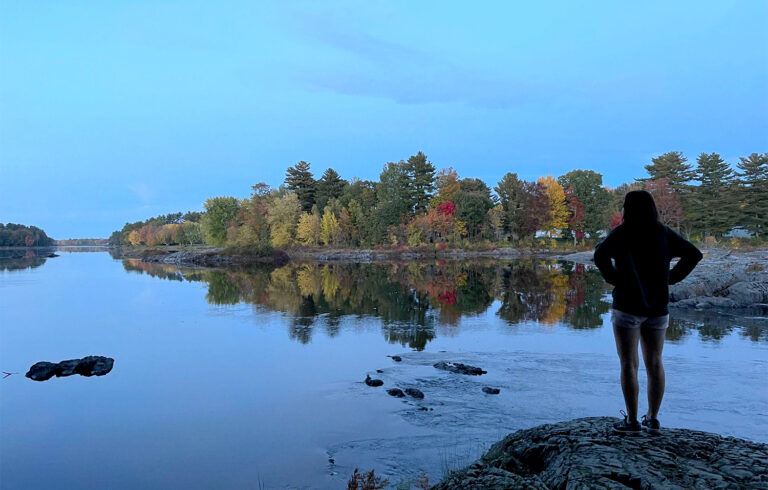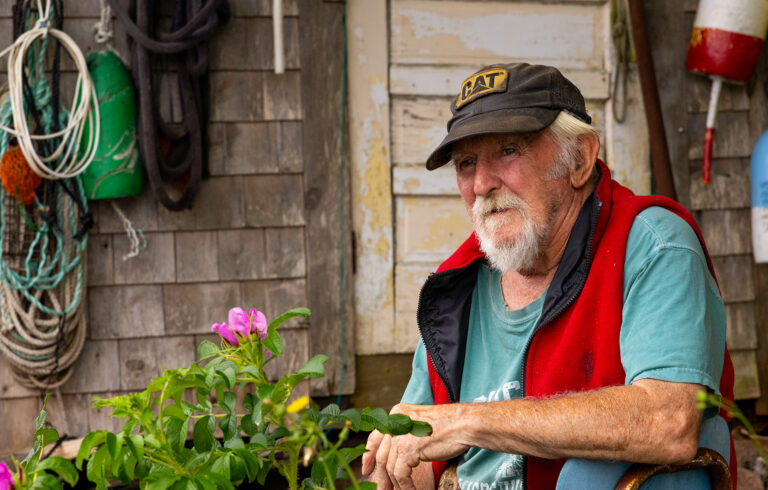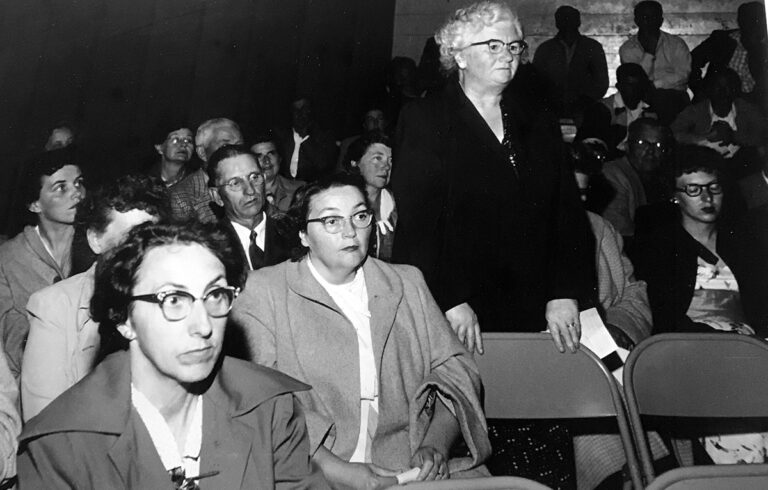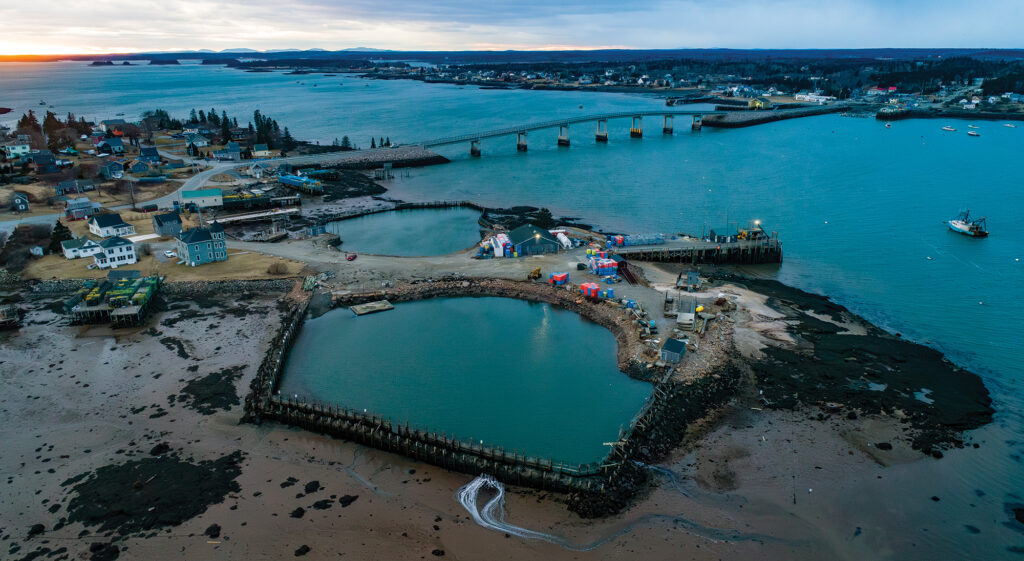
People who live in Jonesport and on Beals Island love to talk about their towns’ histories, not unusual for those residents who can trace their roots to 18th century settlers.
They speak about how each town came into its own. Everyone remembers the history-making high school basketball team. And one wall of the Heritage Center in Beals is devoted to “Tall Barney,” a resident believed to have been seven-feet tall when most locals were generally diminutive.
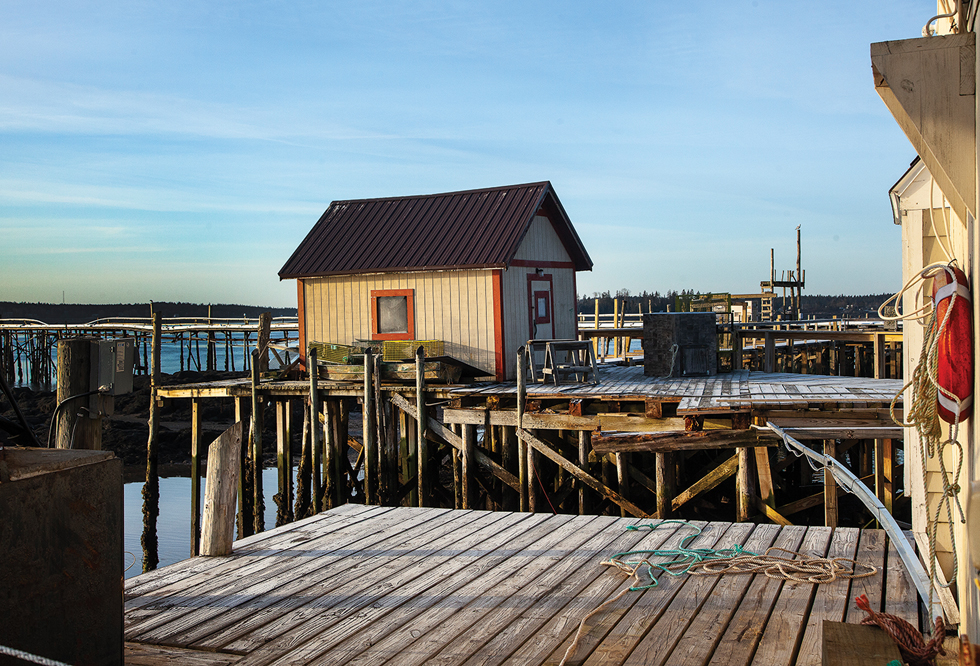
But the steady state of affairs that has governed these two remote towns for over a century is in turmoil today. There are regulatory threats to the lobster industry. Unprecedented storms. And the prospect of declining lobster hauls—the DNA of both towns—has everyone nervous. Change, even the most skeptical will admit, is close and uncertain.
Bert “Sidney” Look, co-owner of Look Lobster Co., said what worries him most is the warming of the Gulf of Maine. He recalls a conversation with an Army scientist on a flight from San Francisco to Seattle in 1980. The scientist was investigating the eruption of Mount St. Helens in March of that year.
“He said we were going to see the whole scenario change around,” Look recalled. “He told me ‘the snow you have up in Maine you won’t have anymore.’ What he told me that day has come to life.”
Anecdotally, a longtime friend told him recently that 300,000 pounds of lobsters the broker bought in Newfoundland looked like they had migrated from Nova Scotia.
“Newfoundland lobsters have a larger claw, larger than any lobster in New England and the Maritimes,” Look said. “It’s very easy to detect.”
Lobster fishermen, he said, now fish further and further offshore. And, lobsters are shedding twice a year, not once, due to warmer temperatures.
That uneasiness might be missed on first approaching Jonesport, a 12-mile peninsula between Chandler Bay, Wohoa Bay, and the Indian River. There are largely modest, clapboard homes in the village. The Coast Guard station stands at the ready alongside the bridge connecting Jonesport and Beals. The first bridge was replaced with a new one in 2020.
The Beals Island Bridge played a pivotal role in the two towns’ histories. First, Jonesport established autonomy from Jonesboro in 1832 because there was no road to Jonesboro and attendance at town meeting—the key moment in the year when citizen decisions were made—was limited to a water crossing, a risky proposition in March.
For Beals, which set itself off from Jonesport in 1925, the problem also was access and the town wanted its own high school. The bridge between Jonesport and Beals was not built until 1958.
In retrospect, those were simpler times. Back-to-back storms on Jan. 10 and Jan. 13, with hurricane force winds in some spots, an astronomical high tide, and unprecedented surges of 14.57 feet, pummeled fishing wharves and buildings.
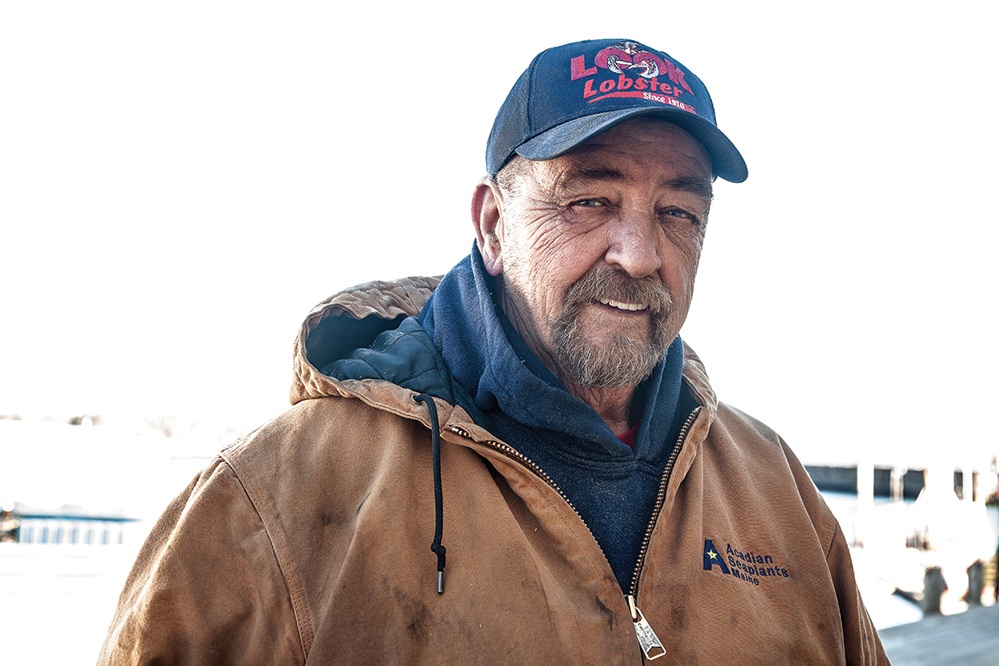
Photo: Leslie Bowman
“I’ve been here 28 years and I’ve never seen anything like it,” said Ronald “Rondo” Dunphy, maintenance supervisor for Look Lobster, which is the oldest lobster supplier in America.
Dunphy said the company lost 65 feet of relatively new wharf, saw three pilings break off their float system, and watched a ramp and 25 pilings under the long wharf get destroyed.
“The wind lifted the western side of the maintenance garage,” said Dunphy. “It ripped the metal off the south end of the garage. And it wiped out all the wire around the lobster pound. There was $200,000 to $300,000 worth of damage. Mother Nature has really been weird the last few years,” he said.
Regulations governing lobster gear loom large as well. The lobster fishing industry in June 2023 was handed a reprieve from new rules designed to protect right whales—protection fishermen maintain is not needed. They say there has never been a documented death of a right whale linked to Maine lobster gear and that the last documented entanglement of a right whale in Maine lobster gear was in 2004.
The U.S. Court of Appeals for the District of Columbia invalidated the biological opinion that the National Marine Fisheries Service used to impose stricter fishing regulations on lobster fishing in the Gulf of Maine, calling the scientific assessment “arbitrary and capricious as well as contrary to law.”
But there is a high likelihood that future federal regulations will require alternative fishing gear in certain areas of the Gulf of Maine. The Department of Marine Resources is enlisting fishermen to join in researching alternative gear retrieval technology such as less expensive options like electronic timed-release and spring release systems.
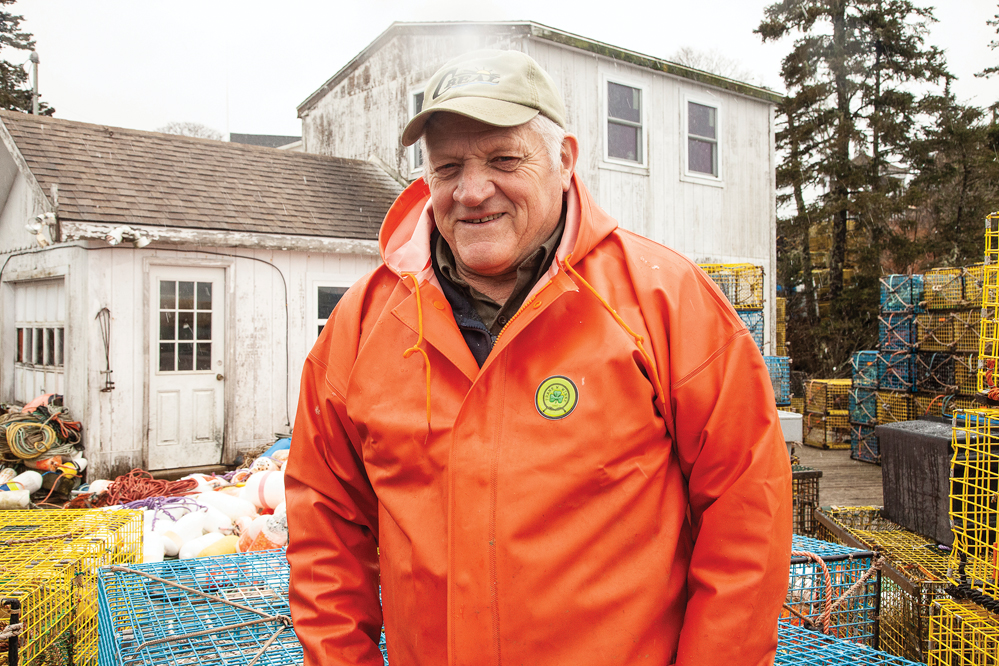
Photo: Leslie Bowman
“It would be the end of the industry in Zone A, which is from the Canadian border to Schoodic Point,” said veteran lobster fisherman Dwight Carver of Beals. “The only ones who could survive are the older fishermen, who own everything.”
Jonesport also is anxiously awaiting a legal decision on whether the construction of a $110 million land-based fish farm for yellowtail kingfish will be allowed. Residents voted by a 2-1 ratio to proceed with the Kingfish Maine project, which was approved by the planning board and affirmed by the local appeals board.
Opponents have expressed concerns about how much nitrogen will end up in Chandler Bay and how treated discharge will affect PH levels. They have lost one challenge in Kennebec Superior Court. Another challenge was pending in Washington County Superior Court, which on Dec. 19, 2023, referred the case to Maine Business and Consumer Court in Portland to expedite the matter.
Those who support the project say that as fishing declines, a reality most marine scientists say is inevitable with the warming of the Gulf of Maine, there needs to be jobs for younger people.
Harry Fish, a retired teacher, is first selectman in Jonesport and supports the project planned by The Kingfish Co. of the Netherlands. He traveled to its yellowtail fish farm in Europe in April 2023—paying his own way—to see a similar operation by the same company.
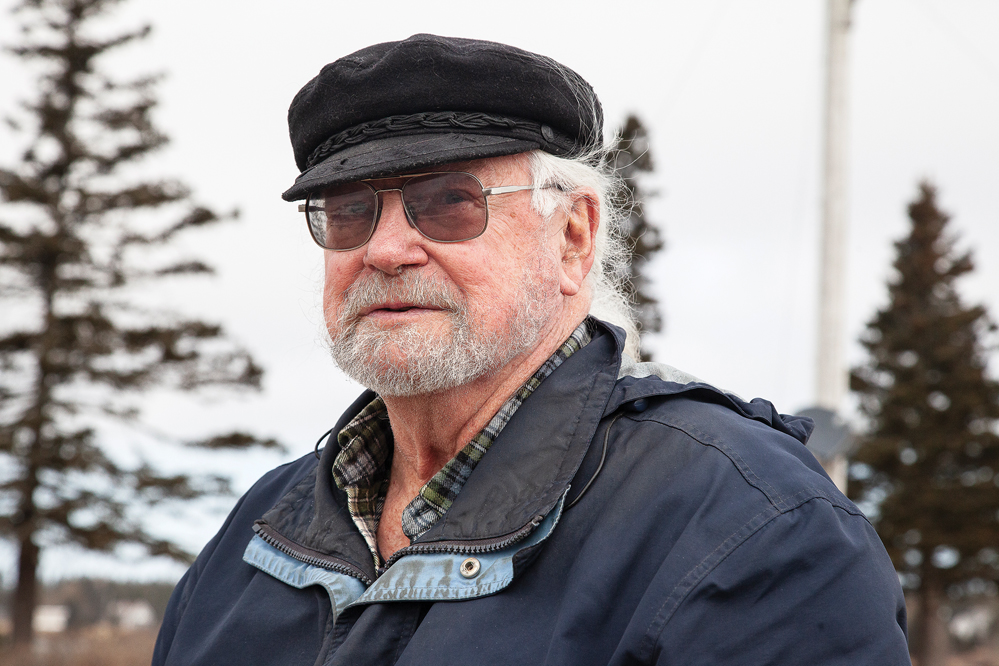
Photo: Leslie Bowman
“The Kingfish farm in the Netherlands has been in operation for five years. I asked the fishermen if they had seen any difference in the water quality since the Kingfish plant had been in operation,” Fish said. “They said it had not changed.” Fish was born and brought up in Jonesport and recalls the days when sardine canneries were plentiful. The last sardine cannery in the U.S. was located in Gouldsboro and closed in 2010.
“We need to expand our tax base drastically. If lobster fishing drops, we’re in big trouble.” – Harry Fish
The plant is expected to generate 50 to 70 jobs. The opposition has largely been led by Protect Downeast, a group of local residents, fishermen, and other supporters. A prime mover behind the effort is the Roque Island Gardner Homestead Corporation (RIGHC).
The corporation was founded in 1940 by descendants of Joseph Peabody, a wealthy shipping merchant from Massachusetts who bought several islands more than 200 years ago. Family members take turns staying in five houses on 1,300-acre Roque Island.
Protect Downeast says the Kingfish farm would draw in water from the bay for its fish, treat it, and then pump it back out, but with nitrogen levels that could harm water quality. The group maintains it wants what is best for Jonesport, which they say is sustainable growth, such as small-scale aquaculture.
The fish farm that Harry Fish visited in the Netherlands, said Ariana Fischer, spokesman for the RIGHC board of directors, is much smaller than what is planned for Jonesport—2,400 metric tons compared to 6,000-8,000 metric tons.
She said many aspects of the proposal do not add up—among them the transportation costs, housing for the estimated 70 employees, and the lack of a careful study of the bay to check for flow.
For those not directly involved in the current day-to-day challenges, life in Jonesport and Beals is still an almost idyllic existence.
Nancy Beal traveled to Beals Island more than 50 years ago to write a profile of the president of the Maine Lobstermen’s Association, Ossie Beal. They were married 18 months later on Dec. 31, 1971. Ossie passed away in 2003.
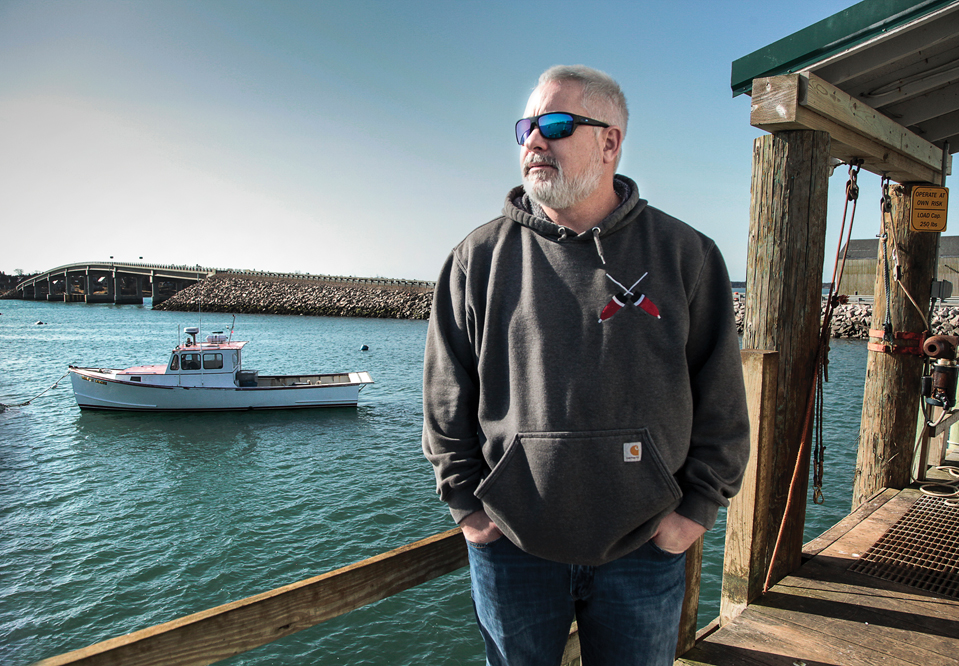
Photo: Leslie Bowman
Beal said her husband fished for more than 60 years and was a significant figure in the industry: president of the Maine Lobstermen’s Association, chief founder and board chairman of the Beals-Jonesport Co-op, and advisor to lobster co-op start ups in Corea and Bucks Harbor.
Nancy loves everything about living on Beals—the clean air, clear skies, seeing stars at night. “The people are like an extended family,” she said.
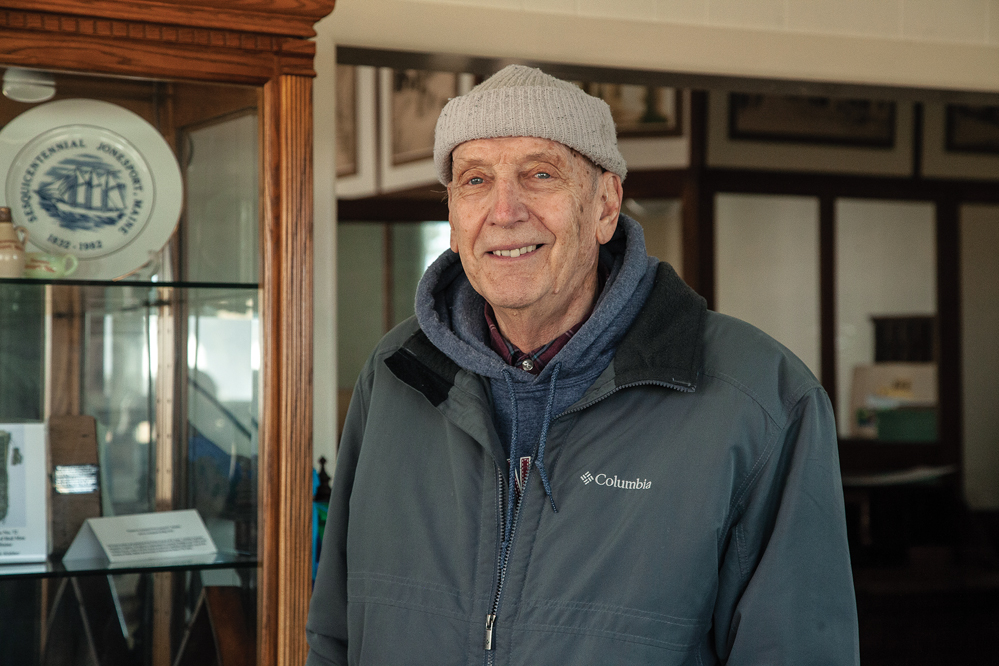
Photo: Leslie Bowman
Bill Plaskon is president of the Jonesport Historical Society and moved there 23 years ago from New Jersey. His sister opened a bed and breakfast and restaurant, Harbor House, and he and his wife moved up to help with the operation. The brother-in-law has since passed away and the building was sold. Plaskon said he has noticed more activity since COVID in fixing some of the older homes, largely by out of towners.
Among the new owners are Kristina and Will Ferguson who last fall bought one of the former Look homes on Sawyer Square in Jonesport. The picturesque property includes a peach colored, Queen Anne Victorian with an unusually large barn in the back and another home next door, which has been gutted.
The Fergusons lived in Cartersville, Ga., outside of Atlanta and plan to spend summers here with their boys—ages eight, six, and five. Kristina’s grandfather owned a cabin on Duck Cove in Roque Bluffs and she spent time there every summer. She introduced her husband to the area during COVID. He and the boys were smitten.
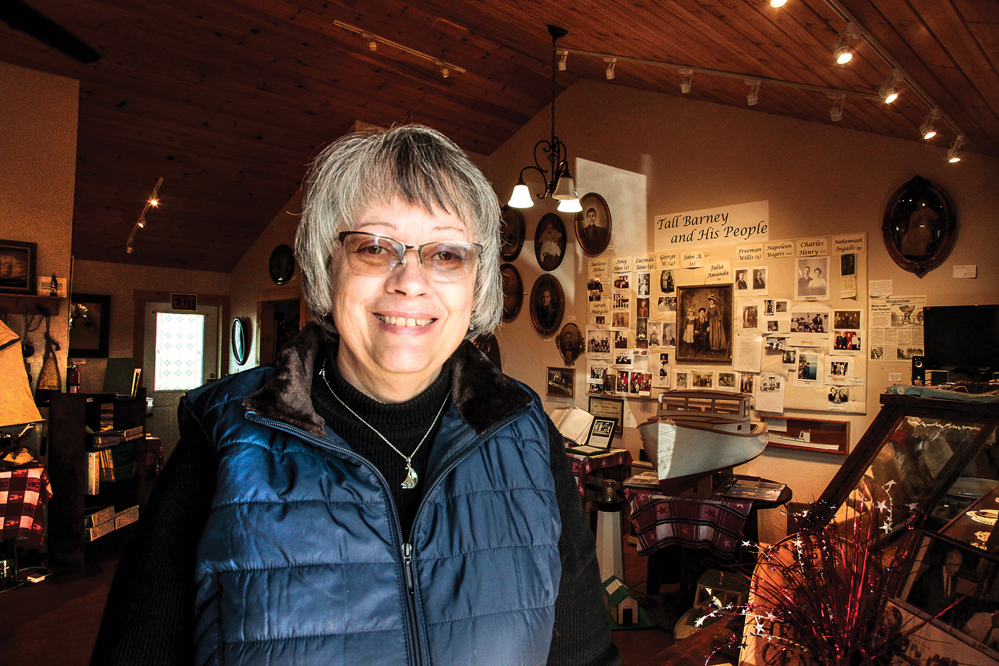
Photo: Leslie Bowman
“It is their paradise up here,” she said. “It’s all mud boots and life jackets.”
And Maine’s cooler summers, she said, will be a relief.
Carol Davis up until recently was president of the Beals Historical Society and is now serving as treasurer. She is an expert on the collections contained in the Heritage Center, which sits on land where the former Beals High School once stood.
Included in the center are photographs of the Jonesport Beals High School basketball team, which won the Class D title for the state of Maine seven years in a row. Beals built its own high school in 1925 and it was closed in 1968 and joined Jonesport’s high school.
Davis was born in Ellsworth and raised in Barney’s Cove. Now retired and living in nearby Addison, she remembers the quiet. The clock in the tower chiming on the hour. The lobster boat engines rumbling in the dark as the fishermen prepared to head out to haul.
“I had a rope tied to a telephone pole at the end of the driveway,” she said of a simpler time. “My cousin would twirl the rope and we would take turns jumping. We had to string it across the road.”
Jacqueline Weaver is a former United Press International and Ellsworth American reporter. She lives in Gouldsboro.


